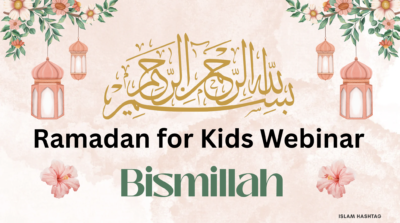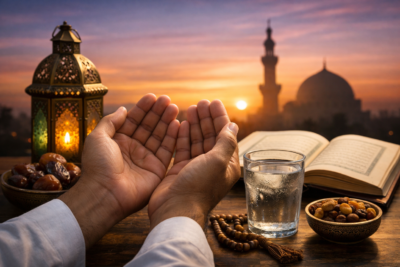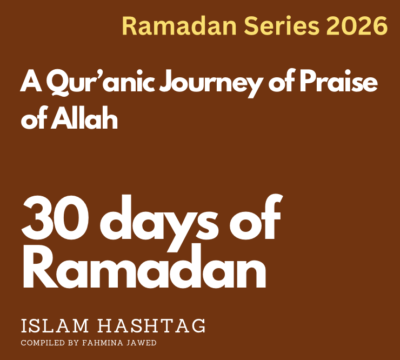Eid ul Adha –A Joyous Feast for the Poor and the Needy
Few days back in India there was an advice from a BJP’s Indore MLA Usha Thakur who advised the Muslim community to either sacrifice their sons or give up the practice of sacrificing animals on the occasion of Bakra Eid.(NEWS).The sacrifice of animals is very often misunderstood and used as an armour against religion.In sha Allah this article will answer the people in doubt .
Why do Muslims sacrifice animals on Eid ul Adha?
During the celebration of Eid ul Adha, Muslims commemorate and remember Prophet Abraham’s trials, by themselves slaughtering an animal such as a sheep, camel, or goat. This action is very often misunderstood by those outside the faith.
With this in mind, let us start with the situation as it was in pre-Islamic Arabia with regard to animal sacrifice. Not only did the pagan Arabs sacrifice to a variety of gods in hopes of attaining protection or some favor or material gain, but so, too, did the Jews of that day seek to appease the One True God by blood sacrifice and burnt offerings.The Hindu’s sacrificed animals by the name “bali”. Even the Christian community felt Jesus to be the last sacrifice, the final lamb, so to speak, in an otherwise valid tradition of animal sacrifice (where one’s sins are absolved by the blood of another).
Nothing to do with atoning of our Sins as is the case with slaughter in other faith-
Islam, however, broke away from this longstanding tradition of appeasing an “angry god” and instead demanded personal sacrifice and submission as the only way to die before death and reach “fana’” or “extinction in Allah.” The notion of “vicarious atonement of sin” (absolving one’s sins through the blood of another) is nowhere to be found in the Qur’an. Neither is the idea of gaining favor by offering the life of another to Allah. In Islam, all that is demanded as a sacrifice is one’s personal willingness to submit one’s ego and individual will to Allah.
Meat of the Sacrificed Animal is shared with the poor
Recently There was a Post which was Viral in Social Media about The Eid sacrifice which asserted that If People do not bat an eyelid on Killing of Animals by the multi million Companies which Kills animals to support their food industry than why See the Sacrifice of Animals by Muslim as a big issue when Infact 2/3rd of the Sacrificial meat by a Muslim is distributed to the Poor.
Muslims slaughter animals in the name of Allah and in a humble manner. By saying the name of Allah at the time of slaughter, we are reminded that life is sacred. The meat from the sacrifice of Eid ul Adha is mostly given away to others
- One-third is eaten by immediate family and relatives,
- One-third is given away to friends,
- and one-third is donated to the poor.
The act symbolizes our willingness to give up things that are of benefit to us or close to our hearts, in order to follow Allah’s commands. It also symbolizes our willingness to give up some of our own bounties, in order to strengthen ties of friendship and help those who are in need.
The symbolism is in the attitute – a willingness to make sacrifices in our lives in order to stay on the Straight Path.
We recognize that all blessings come from Allah, and we should open our hearts and share with others. It is very important to understand that the sacrifice itself, as practiced by Muslims, has nothing to do with atoning for our sins or using the blood to wash ourselves from sin. This is a misunderstanding by those of previous generations:
“It is not their meat nor their blood that reaches Allah; it is your piety that reaches Him.” (Qur’an 22:37)
The symbolism is in the attitude – a willingness to make sacrifices in our lives in order to stay on the Straight Path. Each of us makes small sacrifices, giving up things that are fun or important to us. A true Muslim, one who submits his or herself completely to the Lord, is willing to follow Allah’s commands completely and obediently. It is this strength of heart, purity in faith, and willing obedience that our Lord desires from us.
Conclusion:
That is to say, the underlying implication of Islam’s attitude toward ritual slaughter is not that of blood atonement, or seeking favor with Allah through another’s death, but rather, the act of thanking Allah for one’s sustenance and the personal sacrifice of sharing one’s possessions and valuable food with one’s fellow humans. The ritual itself is NOT the sacrifice. It is merely a method of killing where the individuals kill as quickly as possible and acknowledge that only Allah has the right to take a life and that they do so as a humble member of Allah’s creation in need of sustenance just like every other species in Allah’s creation.
Immolating a goat, sheep, or camel is just symbolic. We see that the innocent animal is firmly under our control, prepared to die for the will of its Creator. Are we ready to sacrifice our lives, our possessions, our inner desires, and our ego? Are we willing to place ourselves, like helpless animals, under the control of the will of our Creator?
This article is has been taken with modifications from a book titled Lift Up Your Hearts by Abdur Rashid Siddiqui who was one of the earliest members of the UK Islamic Mission and is a member of its Shura. He was one of the founder members of the Islamic Society of Britain and was the Chairman of its Shura Council for many years. He is the Secretary of the Board of Trustees of the Islamic Foundation, UK.He asks the faithful Muslims to look beyond the sacrifice of animals and prepare for a life of sacrifice Without making sacrifices, we will not be able to start the revival of Islam. We should be ready to sacrifice our time, our wealth, our resources, our lives, and our personal likes and dislikes. If we sincerely strive in the cause of Allah, He will open His doors of success for us. This is His promise:
(And (as for) those who strive in Our (cause), We will most certainly guide them to Our ways.) (Al-`Ankabut 29:69)
Together we can fulfill the obligation for which this Ummah is created. Without making sacrifices, the revival of Islam will remain only a dream. Making sacrifices is the way to achieving Allah’s pleasure. This was the way of Prophet Abraham and Prophet Muhammad, who proclaimed, (“Surely my Prayer and my sacrifice and my life and my death are (all) for Allah, Lord of the Worlds”) (Al-An`am 6:162).
N.B:Have you read the other articles on Hajj series:
Diary of a pilgrim (when he sees Ka’aba)
Hajj Diary Day 2
Discover more from Islam Hashtag
Subscribe to get the latest posts sent to your email.






JazakAllahu khairan